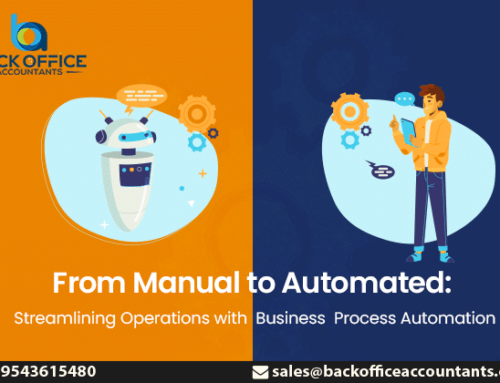One of the critical success factors for nonprofit organizations to continue with their core operations is their financial management. The problem of scarce resources, rules and regulations, and accountability makes the management of the financial resources of a nonprofit organization a delicate affair.
Outsourcing accounting operations for nonprofit organizations is a practical approach as it allows organizations to focus on their core business while accounting is well taken care of. This blog discusses outsourcing and its relevance to nonprofit financial management.
The Role of Outsourcing in Nonprofit Financial Management
1. Accuracy and Compliance
Not only does charity bookkeeping services keep records of accounts. The accuracy of financial statements, compliance with the law and timely filing of taxes are helped. To maintain their credibility, nonprofit organizations have to be financially responsible. Nonprofit-specific laws are known by outsourcing teams. Hence, they can meet federal and state legal requirements.
It also ensures accountability, which is important when the organization presents its financial reports to the various donors, boards, and other government agencies. nonprofit organizations that adopt the best accounting practices reduce the chances of making mistakes that may lead to penalties or loss of reputation.
2. Cost-Effective Solutions
In most cases, it is not possible to hire full-time financial staff since it may strain the organization’s financial capacity. Outsourced accounting for nonprofits is cheaper because it gives the nonprofit the ability to hire a team’s expertise without having to pay them full-time. This allows the nonprofits to devote more of their resources to the programs and the beneficiaries.
3. Strategic Management Support
Financial management of a nonprofit is not just a balancing of budgets. It is a process of decision-making for the sustainability of the nonprofit. Outsourced bookkeeping services for charities include financial analysis, forecasting, and planning. These ideas enable the heads of nonprofits to evaluate their financial situation and think about development or expansion.
Best Practices in Nonprofit Accounting
- Technology Adoption
One of the best practices to be advised to adopt technology is outsourcing financial services for nonprofit organizations. The new cloud accounting software solutions organize and analyze data in real time and facilitate cooperation between nonprofit organizations and outsourced specialists. In addition, these tools improve the quality and safety of the financial records to meet the industry standard.
- Segregating Funds
Nonprofits may be handling any number of grants, donations and sponsorships at any one time. Separating the funds is also a requirement of nonprofit accounting principles to avoid confusion and to remain legal. In addition, outsourced accounting for nonprofits includes setting up controls to track restricted and unrestricted funds to meet donor accountability.
- Budget Monitoring
Nonprofits need to conduct budget checks to keep the right financial path. An outsourced accounting team can prepare and present reports on the company’s budget; as well as give insights on how well it is being managed and where there is a need for more attention and why. It is a proactive approach that helps organizations to change their strategies before financial problems appear.
Financial Management Tips for Nonprofits
- Select the Right Partner
Choosing the right provider for outsourced bookkeeping for charities is very important. Look for firms that have a history of good performance in managing nonprofit organizations’ finances. An ideal partner should be able to know the problems that organizations have and give solutions to them.
- Prioritize Communication
For the project to be successful, the relationship between the nonprofit and the outsourced team has to be good. Setting goals, timelines, and accountability from the onset is important. It keeps both parties on the same page regarding the objectives and expectations of the project.
- Focus on Scalability
The size of the program or the periodicity of donations may determine irregular cash requirements for nonprofits. Outsourcing accounting for nonprofit organizations is beneficial because it can be adjusted to the organization’s needs as far as the provision of services goes while maintaining financial efficiency without adding extra expenses.
Why Financial Management is Essential for Nonprofit Organizations
The structure for financial management is accounting, and it is the lifeblood of any organization, especially a nonprofit organization. Outsourcing financial functions allows the organization to stay relevant to its mission while professionals handle complicated accounting procedures. This paper shows that implementing nonprofit accounting principles and outsourcing services improves the financial position of nonprofits and increases their credibility with stakeholders.
Any nonprofit organization should know that financial difficulties and risks are inherent. Outsourced bookkeeping for charities provides organizations with tools and information to react quickly to new situations. Regardless of the odds, a sound financial platform will allow nonprofits to deal with economic fluctuations, handle donors, and address new regulations.
Conclusion
Good stewardship is not just a legal requirement for nonprofits, but a development, credibility, and longevity tool. Outsourcing of accounting by nonprofit organizations is a strategic move towards efficiency in financial management and core mandate.
One of the best ways to handle the nonprofit’s finances, minimize risks and prepare for the future is to outsource the back office accounting services to professionals. Contact Back Office Accountants today to learn more about how professional back office services can help improve your nonprofit organization’s financial position.







